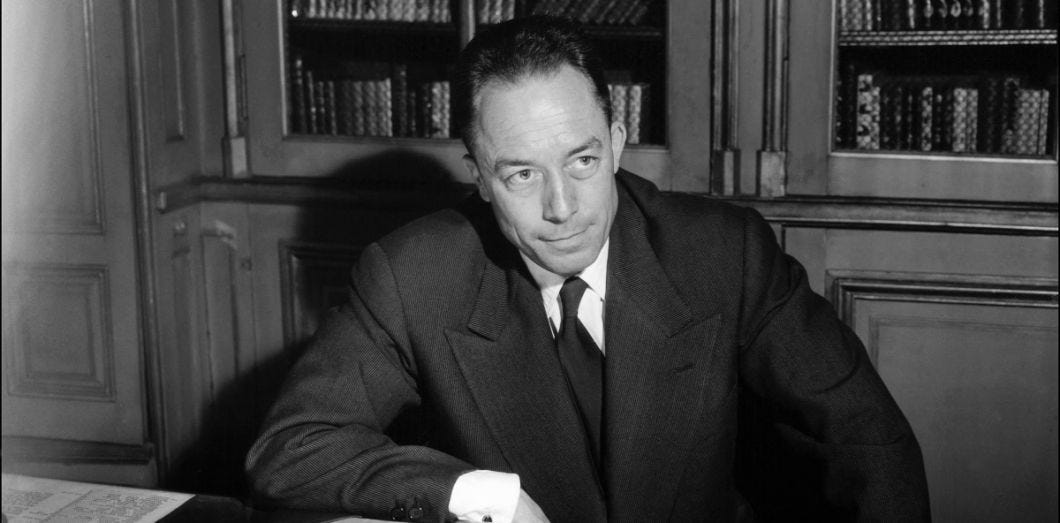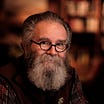
Life really is like a dream (sometimes, alas, a nightmare). I feel that keenly during the ritual announcement of the Nobel Prize in Literature each year. Not even the orotund convolutions of the official announcement can break the spell.
If the winner is a writer I’ve read who seems not quite up to snuff, I accept the result stoically. So too when, as last week with Jon Fosse, the prize goes to a writer I’ve only briefly investigated and judged not to be my cup of tea. When the writer is one I’ve never read at all—which doesn’t happen often but does occur now and then, as with Abdulrazak Gurnah in 2021—I catch up a bit. That was how I came to read Herta Müller (the 2009 laureate) for the first time; she quickly became a favorite. I should add that it’s the announcement I care about, not the formal ceremony later in the year, though some of the Nobel Lectures turn out to be worth reading (Müller’s very much included).
Of course, the prize and its reception have evolved over the past 100 or so years. (It was given for the first time in 1901, to the French poet Sully Prudhomme.) I won’t have anything to say about that here, except as it pertains to recent history. Some years ago—I can’t say precisely when—I noticed a new trend in coverage of the Literature prize. It popped up in various places, but it was particularly noticeable at The New Republic (a publication having nothing in common with its distinguished predecessor but the name). More and more pieces began to appear (most of them, but not all, at online sites) in the period leading up to the actual announcement. Betting odds for the favorites were almost always mentioned. What was peculiar was how similar in tone these pieces were: an incongruous mix of handicapping, jokey irony (at the expense of the Nobel Committee and people, like me, who waited with genuine interest for the outcome), and—weirdly enough—a crude moralism (with no evident foundation).
I didn’t see as much of that stuff in the last couple of years, and even less so this year; perhaps the routine has begun to wear out, as these things do. And when the prize was announced this year, I found myself thinking back to my first recollection of the event, in 1957. I was nine years old, and already a dedicated reader of the Pomona Progress-Bulletin, which I typically devoured while stretched out on the living-room floor. That year, the laureate was Albert Camus, whom I’d already heard of, though I didn’t read anything by him until I was fourteen. It’s hard to convey the power of his aura, amplified by the cultural authority that France and French culture then enjoyed. From that year on, I routinely looked forward to the annual Nobel announcement. (By the way, all ye who pronounce on “the evangelical imagination,” etc.: the first conversation about Camus I had, several years later, was with the youth pastor of our Baptist—and unmistakably “evangelical”—church.)
Pasternak won the year after Camus (he was required to decline the award). Russian lit, as it turned out, was to play a much greater part in the shaping of my mind than its French counterpart, though I am very grateful for the latter. As I look over a printout of the winners in the decades since, I am struck by how various they are—all over the map in a good way. The list makes a mockery of the prize’s mocking critics, and it undercuts all sorts of pretentious generalizations about “modern literature.” St. John Perse in 1960, Ivo Andric in 1961, John Steinbeck in 1962; Yasunari Kawabata in 1968, Samuel Beckett in 1969, Aleksandr Solzhenitsyn in 1970—how irreducibly various these writers are! I find many personal favorites here (among them, Isaac Bashevis Singer, 1978; Czeslaw Milosz, 1980; Tomas Tranströmer, 2011, and Peter Handke, 2019, in addition to Herta Müller, whom I’ve already mentioned). Really there are too many to name; it was the 2014 award that prompted me to read Patrick Modiano for the first time, and since then I’ve read all his books translated into English. No single approach to writing, or to our common life, defines these figures.
I still hold out hope that the Nobel deliberators will recognize Thomas Pynchon, Diane Glancy (who should be the first Native American laureate), John McPhee, and Marly Youmans, among others. But three cheers for what they have already done. We should be grateful.





When I heard Jon Fosse won the prize , I kept thinking isn’t he dead! Then I realized, no threats Bob Fosse. I’ve never heard of this man .